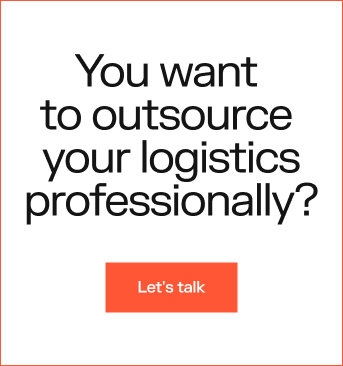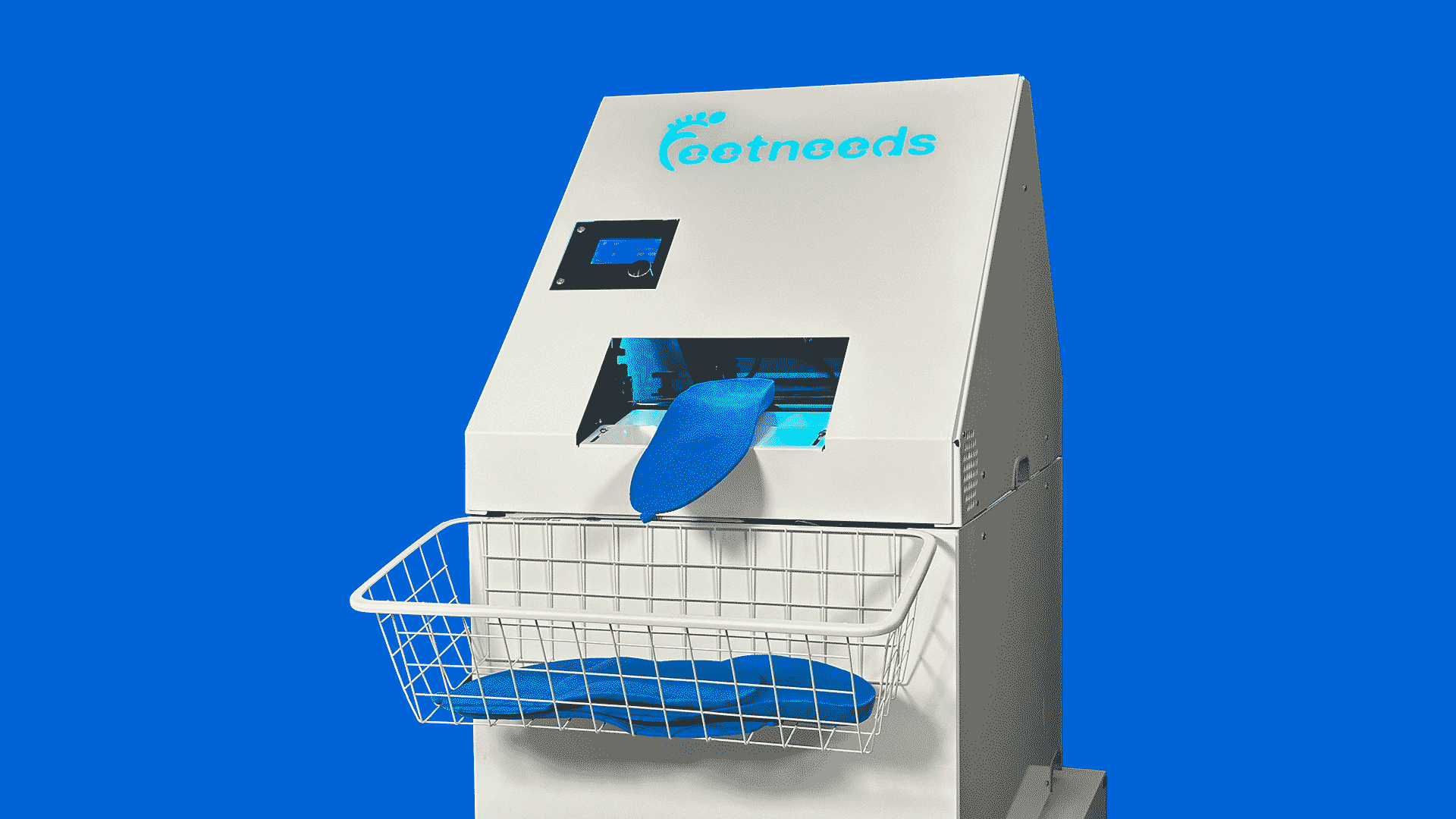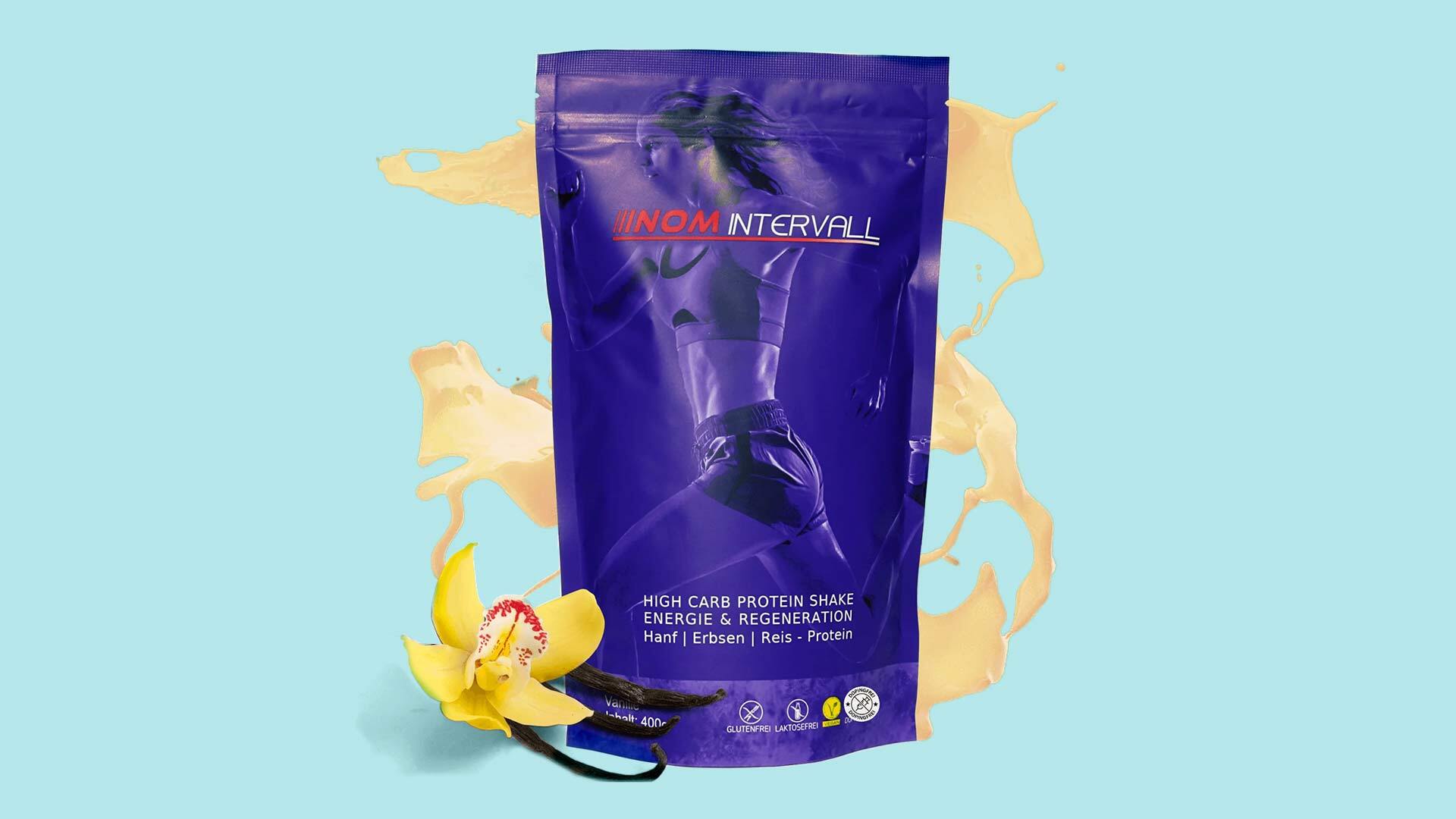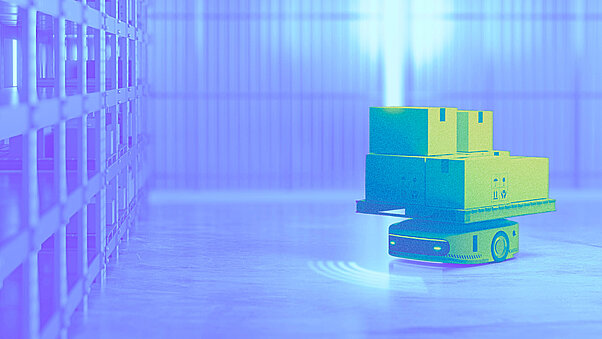
Fulfillment Partner: The Key to E-Commerce Success

The e-commerce landscape has changed dramatically in recent years. The number of customers – and competitors – has grown massively. While online retailers used to manage their logistics on their own, they’re now facing increasingly complex challenges.
This is where the fulfilment partner comes in – a strategic ally that helps businesses streamline their logistics and accelerate growth! In this article, you’ll find out everything you need to know about fulfilment partners and whether outsourcing your logistics is the right move for you.
- Definition: What Are Fulfilment Partners?
- Why a Fulfilment Partner Is Worth It
- When It’s the Right Time to Outsource
- The Benefits of a Fulfilment Partner
- Key Fulfilment Trends to Watch
- Real Examples & Success Stories from Different Industries
- Common Mistakes When Choosing a Fulfilment Partner
- Getting Started with Fulfilment — How the Process Works
- FAQ — All About Fulfilment Partners
What Are Fulfilment Partners?
A fulfilment partner is a specialised company that handles the entire logistics process for your (online) shop, managing every step after an order is placed. These include:
- Goods receipt & storage
- Picking & packing
- Packaging & shipping
- Shipment tracking
- Returns management
Modern fulfilment companies like Quivo integrate these services seamlessly with your shop or ERP system, creating an automated workflow that saves you tons of daily effort and massively speeds up your logistics.
Essentially, the fulfilment partner takes care of everything that happens after a customer clicks the “Buy” button – and does so in a professional and, most importantly, highly scalable way! They act as an extension of your business and play a crucial role in both customer satisfaction and your overall success.
- To clarify: Terms like 3PL (third-party logistics), fulfilment provider, or fulfilment service are all synonyms for the same thing – outsourcing your logistics processes to an external service provider.
The Core Services of a Fulfilment Partner
Here’s a clear and detailed breakdown of the services mentioned earlier:
Warehousing and Inventory Management:
An experienced fulfilment partner takes over part or all of your product storage in specialised high-turnover warehouses known as “fulfilment centres”. Modern logistics systems allow for precise, often real-time inventory tracking. This gives you full visibility into your stock levels at any time and makes managing your product range easy.
Example: Our Quivo Connector is one such logistics software that gives you full transparency and control over your logistics. Follow the link for more details on how it works.
Order Picking = Pick & Pack:
Careful picking (i.e. assembling the order) and professional packing are key to customer satisfaction, as they must be done quickly and accurately! A fulfilment partner has trained staff and optimised processes that minimise errors and significantly speed up shipping. This makes it much easier to scale your logistics efficiently.
Shipping & Tracking:
Thanks to established partnerships with shipping carriers, a fulfilment partner can often negotiate better shipping rates and offer more flexible delivery options. Your customers benefit from faster delivery times, more affordable shipping, and reliable tracking.
Returns Management:
Professional returns handling is a seriously underrated aspect of e-commerce. It involves a lot of effort – but even returns can be automated effectively! Fulfilment partners have established processes for receiving, inspecting, and restocking returned goods.
Example: We use an ABC classification system along with photo documentation of each return, which is directly visible and traceable in the Connector.

Why a Fulfilment Partner Can Be Worth It
- Cost Efficiency & Scalability: Instead of setting up your own warehouse, staff, and IT systems, you use the existing infrastructure of a fulfilment partner and benefit from economies of scale.
- Focus on Your Core Business: With logistics off your plate, you can focus on your business, product development, marketing, and customer acquisition. In other words: drive growth!
- Technology & Expertise: Cutting-edge systems, automated processes, and the fulfilment partner’s years of experience save you major investments and the hassle of building your own logistics department.
- Flexibility: Your fulfilment partner can quickly adjust capacity to handle seasonal or unexpected peaks, avoiding bottlenecks without incurring losses or excessive costs – especially during high-demand periods like Black Friday or Christmas. We’ve written a detailed article on this topic.
- Global Expansion: A multi-carrier network and customs know-how make entering new markets much easier! Most fulfilment partners ship to nearly every country in the world effectively.
- Higher Customer Satisfaction: Faster delivery options (same-day or next-day) and smooth returns management significantly improve the shopping experience for your customers – which means: your brand gets a boost.
When’s the Right Time for a Fulfilment Partner?
Deciding when to outsource your logistics to a fulfilment partner depends entirely on your specific situation. Here are the key signs that usually tip the scale:
- Rising Order Volume: If packing and shipping orders manually is eating up more and more of your time, leaving you with too few resources for your actual business.
- Lack of Space: If your home, office, or small warehouse is bursting at the seams, or your costs for storage and staff are getting too high.
- High Shipping Costs: If you feel you're paying too much for shipping and can’t negotiate better rates.
- International Expansion: If you're planning to go global and don't want to deal with complex customs and shipping regulations yourself.
- Desire for Professionalisation: If you want to take your supply chain to the next level and give your customers a premium, lightning-fast delivery experience.
The Benefits of a Fulfilment Partner
A fulfilment partner offers a wide range of benefits that can be crucial for both start-ups and established businesses:
- Focus on Your Core Business: Instead of spending valuable time and resources on storage, packing, and shipping, you can fully concentrate on product development, marketing, sales, and building your brand. That’s the heart of what makes your business unique.
- Cost Optimisation: While there’s a fee for the service, a fulfilment partner can lead to significant long-term savings! You avoid major investments in warehouse space, warehouse management systems, and staff. Plus, you benefit from volume discounts through the partner’s shipping providers.
- Scalability & Flexibility: Is your business growing? Experiencing seasonal spikes? A fulfilment partner can flexibly respond to fluctuating order volumes. No need to worry about running out of space or overstretched staff. That’s especially important for e-commerce companies dealing with unpredictable growth and untapped potential.
- Improved Customer Satisfaction: Why is Amazon so successful? A key reason is their seamless logistics. Fast, reliable, and professional shipping is now a crucial factor in customer satisfaction. Fulfilment partners are logistics experts who often deliver shorter delivery times and fewer errors – which directly translates into positive reviews and repeat customers.
- Global Reach: Many fulfilment partners have a network of strategically located warehouses, both nationally and internationally. This makes it much easier to enter new markets and get products closer to your customers, reducing delivery times and cutting shipping costs. Hashtag: customer satisfaction!
- Access to Expertise & Technology: A professional fulfilment partner brings not just physical infrastructure, but also years of specialised logistics know-how. On top of that, you get inventory management software and often analytics tools that give you valuable insights into your supply chain. Many businesses discover new opportunities and blind spots through working with fulfilment partners that they’d never noticed before.
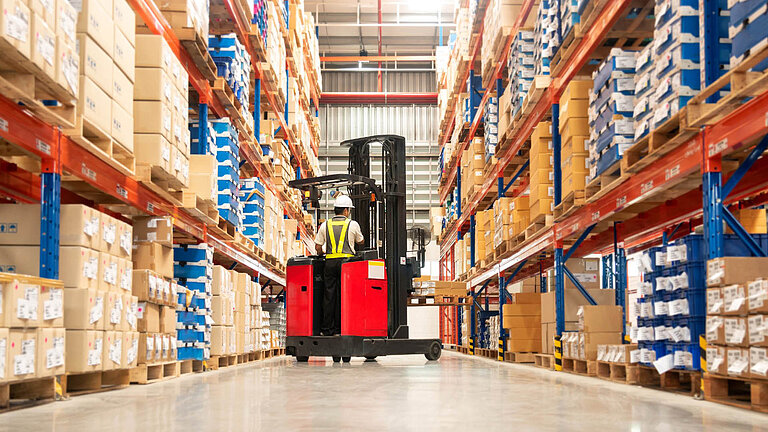
Checklist: How to Choose the Right Fulfilment Partner
Industry Know-How:
Check references in similar industries: Does the fulfilment partner have experience with businesses and product types like yours? You’ll often find logos and success stories on their website. A large client base is usually a good sign that they cover a wide range of industries.
Warehouse Locations:
Proximity to your key markets for faster delivery: Are the partner’s warehouses strategically placed to reach your target audience quickly? Where do they ship, and do they have locations there too? One crucial – yet often overlooked – detail: Are the warehouses just rented spaces from third parties, or are they fully managed fulfilment centres owned and run by the partner? Only the latter can truly guarantee high-quality logistics.
Quality Control & Communication:
Outsourcing your logistics means handing over control – intentionally. So trust and transparency are key. A reliable fulfilment partner should offer clear communication and regular reporting. Ideally, they’ll provide a real-time dashboard in their logistics software so you always have up-to-date data at a glance.
Data Protection & Security:
Since your fulfilment partner processes orders, they’ll need access to sensitive customer and business data. Make sure appropriate data protection and security standards are in place. Ask whether they have data protection certifications and how they handle sensitive information.
Contract Flexibility:
E-commerce evolves quickly, so your fulfilment agreement should allow for flexibility and change. Look for adjustable service packages, dynamic pricing, and a range of shipping options.
Tech Stack & Integrations:
Can the fulfilment partner integrate smoothly with your e-commerce setup (e.g. Shopify, WooCommerce, Billbee, etc.)? Are existing APIs available, and how fast is the onboarding process? These are key to a smooth start and long-term cooperation.
Example: Here you’ll find a full overview of all our system and carrier integrations.
Transparent Pricing:
The more detailed the pricing list, the better: A good fulfilment partner won’t hide potential fees. Don’t be put off by long price sheets – most providers have similar cost structures. The ones who list every possible cost openly are showing transparency – a sign you can trust their offer.
Service‑Level‑Agreements (SLAs):
SLAs are your safety net: Your fulfilment partner commits to fixed pick & pack times and defined delivery rates. That way, you know exactly how quickly orders leave the warehouse and when they’ll reach your customers. No surprises – just reliable, plannable performance.
Sustainability:
Green fulfilment matters: CO₂-neutral shipping, plastic-free filler materials, and recyclable packaging show responsibility and are increasingly valued by customers. You reduce your environmental footprint without losing efficiency. What “green logistics” really means – no greenwashing! – is explained in our dedicated article.
Added Services – That Extra Wow in the Box:
Personalised inserts, product bundles, or professional kitting can level up your brand experience and create a real sense of uniqueness. Your fulfilment partner can handle all of these extras – while you score big points with your audience.
Returns Without the Headache:
Returns aren’t just a hassle – they’re an opportunity to deliver great service! A skilled partner processes returns quickly, restocks items in perfect condition, and triggers automated refunds. That cuts down waiting times, saves costs, and keeps buyers happy. Bonus points for detailed return documentation with condition photos directly in the logistics software.
Key Fulfilment Trends to Watch:

Whether it's digitalisation, e-commerce, or AI – all of it is changing the way we shop, and with that, the logistics behind it. Trends that seemed futuristic just a few years ago are now part of everyday operations.
- You can find out which ones matter most in our in-depth article on the 10 most important fulfilment trends right now!
Your potential fulfilment partner should absolutely be aware of these to ensure your logistics stay competitive and future-proof.
Case Studies & Success Stories from Different Industries
At some point, many businesses hit a wall with their in-house logistics. Here are a few typical scenarios we encounter every day:
- One common case: A start-up begins with 500 orders a month, then suddenly faces 5,000 orders during a Black Friday campaign. The in-house warehouse can’t cope, and there simply isn’t enough staff to pack everything on time.
- Another scenario: An established online shop wants to expand internationally, but their current fulfilment partner doesn’t offer cross-border shipping or customs handling. They may also lack warehouse infrastructure in the target region, making the whole process even more complicated.
- Or this: Return rates are climbing, but the internal returns process is too slow and unclear. Customers end up waiting weeks for refunds, which leads to negative reviews – and ultimately affects revenue.
This is exactly where a fulfilment partner steps in: they bring the scalability, technology, and expertise needed to handle peaks, break into international markets, and automate returns – all while significantly easing the load on your internal team.
Our clients share how automated fulfilment has transformed their business:
Common Mistakes When Choosing a Fulfilment Partner
...And How to Avoid Them!
Focusing Only on Price:
Of course, everyone wants to save money with their fulfilment partner – but if you focus solely on price, you’ll quickly overlook the real costs. Instead, look at the total cost of ownership (TCO): What about pick & pack rates, returns processing, and service level agreements? A low per-order price doesn’t help much if hidden fees blow your budget later. Don’t be fooled by promotional rates that seem too good to be true – question them!
No Clear SLAs:
There’s nothing more frustrating than an order arriving late or being packed incorrectly. That’s why it’s essential to define error rates and quality standards in the contract! This way, you know exactly what to expect and can hold your fulfilment partner accountable if things go wrong.
Poor Data Flow & Visibility:
Data is key – but only if it’s accessible! You’ll need reliable system integrations and real-time reporting to stay in control of your logistics at all times. Make sure the partner offers clear dashboards and full transparency in their software. Bonus points if the system allows you to create support tickets directly – that saves you from long email chains and time-consuming explanations.
Underestimating Returns:
In our experience, returns are often overlooked during the search for a fulfilment partner – or ignored altogether. Be sure to check whether the provider offers dedicated and efficient returns workflows. This can save you significant time and cost, and it leads to happier customers.
Getting Started with a Fulfilment Partner — How It Works
For many businesses, the implementation roadmap usually looks like this:
- Needs Analysis – Even before reaching out to fulfilment partners, a detailed order history and forecasts are created. It’s also important to prepare your own data and precise product details to simplify the quoting process.
- Shortlist – Reach out to multiple potential partners and compare their offers and level of professionalism.
- Onboarding – Once a fulfilment partner has been selected, your system is integrated and connected to their logistics software via your API.
- Stock-In & Upload – This is where you upload your products into the logistics software and send your goods to the partner’s fulfilment centre for proper storage. This stage also includes defining things like SKU mapping, return rules, and any extras like flyers.
- Test Phase (Pilot) & Training – Before going fully live, test orders are usually run together to see how well everything is working.
- Go-Live – If everything checks out, automated shipping of your orders begins!
- Review & Optimisation – You monitor your KPIs, all processes are fine-tuned together, and your logistics are continuously optimised. This is where automation really starts to kick in – and you benefit from a noticeable boost in efficiency!
FAQ — The Most Frequently Asked Questions About Fulfilment Partners
1. How Long Does It Take to Switch to a New Fulfilment Partner?
Switching to a new fulfilment partner usually takes between 2 and 8 weeks. The exact timeframe depends on the size of your inventory, the type of products you sell, and your IT systems.
Make sure to clarify with your current fulfilment partner how quickly you can vacate the warehouse, and coordinate closely with your new fulfilment partner to ensure a smooth transition.
2. From What Order Volume Does Outsourcing to a Fulfilment Partner Make Sense?
Automated fulfilment really starts to make sense at around 300 orders per month. At this volume, economies of scale kick in, allowing a specialised fulfilment partner to significantly reduce your cost per order thanks to their infrastructure and streamlined processes.
Of course, this number can vary depending on the type of products you sell. The best approach: work out a calculation with the fulfilment partner. If you reach a break-even point compared to self-shipping, it’s definitely worth considering!
3. Who Bears the Shipping Risk When Working with a Fulfilment Partner?
Typically, the fulfilment partner bears the shipping risk up until the shipment is handed over to the carrier. This means the fulfilment provider is responsible for any loss or damage while your goods are in storage or during the packing process. Once the parcel is handed off to the shipping carrier (like Royal Mail, for example), the risk usually transfers to them.
The exact terms should always be clearly defined in your contract with the fulfilment partner – just like many other key details!
4. Can I Use Custom Packaging When Working with a Fulfilment Partner?
Absolutely – that’s usually no problem. Many fulfilment partners offer services like “kitting,” where products are packed in your own branded shipping boxes. These are typically provided by you as the business. Including personalised inserts (like flyers or greeting cards) is also very common.
Just make sure to discuss your packaging preferences early on with your fulfilment partner to give your brand that extra touch and stand out from the competition!
5. How Do I Stay in Control of My Inventory If a Fulfilment Partner Manages My Warehouse?
No worries – you still have full control over your inventory, even when outsourcing to a fulfilment partner. Their logistics software gives you real-time access to your stock data, typically via a clear dashboard and API integration.
You’ll be able to track inventory levels, stock movements, and the status of your orders at any time, as all data is synced between your systems and the fulfilment partner’s.
Sources
Fulfilment Trends 2025: https://quivo.co/uk/fulfillment-trends-2025/
The E-Commerce Peak Season 2025: https://quivo.co/uk/amazon-prime-days-2025-dates-tips/
Fulfilment Centres in Germany: https://quivo.co/uk/order-fulfilment-centres-uk-benefits/
What Green Logistics Really Means: https://quivo.co/uk/green-logistics-what-sustainable-logistics-really-means/
Quivo Integrations: https://quivo.co/uk/all-integrations/
Logistics Software – The Connector: https://quivo.co/uk/connector/
Image Sources: Canva, Pixabay, Quivo © 2025



